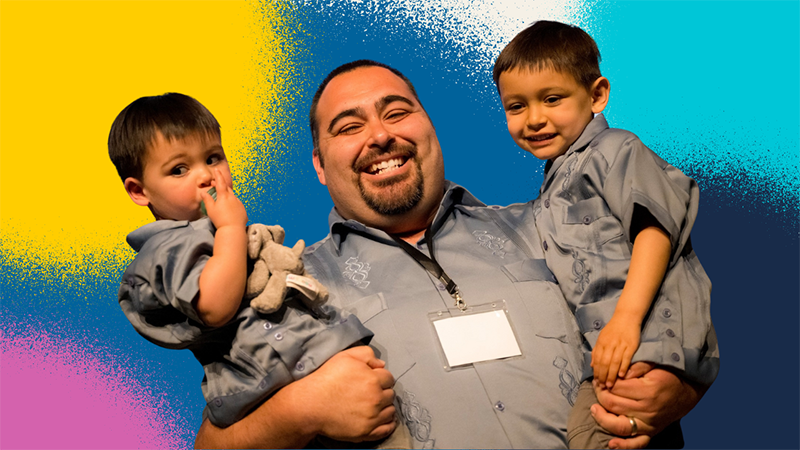UC People: Mario Garibay, connecting people through heritage
Share This Article

By Jen Jordan, UC San Diego
As dean of student affairs at Eleanor Roosevelt College, Mario Garibay Ed.D., ’19, sees himself as similar to a hotel concierge: a one-stop source of information, but for UC San Diego students.
He’s passionate about creating spaces that allow people to find where they belong, a commitment he channels as a co-chair for UC San Diego’s Latinx Heritage Month Committee and chair of the César E. Chávez Celebration Month Committee. In his own words, Garibay shares why these roles matter deeply to him and how his passion took root.
“My experience as an undergraduate taught me how essential it is to have a sense of belonging at an institution. It’s why I started working in student affairs, and eventually joined UC San Diego’s Latinx Heritage Month and César E. Chávez Celebration Month committees.
When I first started my undergraduate career, it took me a long time to find my place. But I got involved in our multicultural center and everyone was really welcoming; it’s how I immersed myself in the campus.
That experience has stayed with me. I don’t want anybody to feel like they don’t belong somewhere. I know what that felt like my first few weeks of undergrad. Eventually, I found my place and my community, ultimately deciding on a career in student affairs after graduation, where I could give back to students in the same way my mentors did for me.”
The concierge of Student Affairs
“In many ways, my role as the dean of student affairs at Eleanor Roosevelt College is like a concierge at a hotel; students need to find out how to navigate the campus and they don’t know where to start, so they start with me. If a student ever feels lost or alone, I want to be there for them as a welcoming source of holistic support.
On one level, I make sure people feel validated. I listen to our students and center their needs to ensure that they feel like they belong and can fully benefit from the many services, programs and opportunities UC San Diego offers. It’s easy for folks to be transactional, forgetting that at the end of the day, we’re all human.
On another level, this role is about empathy and connection. I intentionally slow down the pace of the work. In meetings, I start off by asking how people are doing first and have a conversation with them. We will get into the work eventually.
As a dean of student affairs, I advocate for the needs of our students. Because of the college system at UC San Diego, I interact directly with students, and I’m not as far removed as I would be at a centralized institution. We can foster meaningful human connections within the large scope of UC San Diego. After hearing their stories and what they’re experiencing, I see what I can do within my own capacity or what resources I can connect them with to make sure that they thrive at UC San Diego. My approach is grounded in the student experience. I help them from step A to step Z.
Ultimately, I just want to make sure that students are successful at the university and that they find their sense of belonging, whatever that looks like.”
Centering spaces and experiences
“My work with the heritage month committees really aligns with my role as a dean of student affairs. I’m trying to create space and center the experiences of people at UC San Diego. Maybe this goes back to my undergraduate years, but I believe so strongly in finding space and community. Additionally, if a student is struggling, I often know who they should talk to because these committees bring together so many different people from around the university.
In these committee spaces, I can be myself and be a bit more authentic than I am in other spaces. I don’t have very much hair left, but I let my hair down with these committees. Serving on them gives me energy, recharges and recenters me.
Heritage month committees bring people together from across the enterprise to work together on a campus-wide initiative that everyone can participate in.
They are also an opportunity for people to engage and learn more about a specific topic or culture, and they’re a time to come together to celebrate and be in community. At the end of the day, people are invested in learning about the community, and that’s part of the reason why we do it.
Heritage months and celebrations foster and celebrate communities and cultures. For our Triton community, I hope these celebrations provide validity that their experiences matter and that they belong here.”
